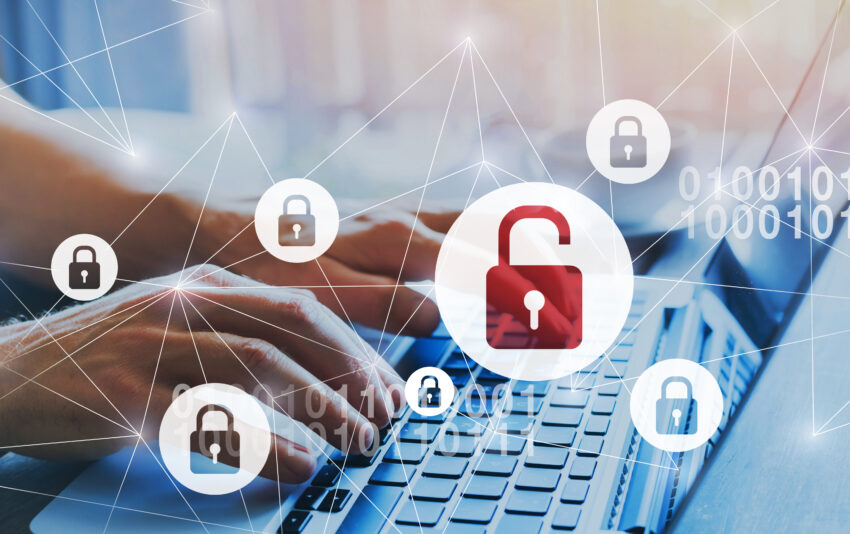How to protect your business data from cyber-attacks
Large or small companies are prone to data theft and web threats, no matter how much you want to believe the contrary. Read more: How to protect your business data from cyber-attacks


Large or small companies are prone to data theft and web threats, no matter how much you want to believe the contrary.
Living in the digital age proves beneficial in several aspects, but also comes with many threats, one of the most common being data breaches. That’s why everyone should be preoccupied with protecting their personal information, including businesses. Since data represent the lifeblood of a corporation, it’s mandatory to keep them secure.
At first, it may seem challenging, but if you adopt the right strategies and invest in powerful security tools, you shouldn’t have problems keeping your data safe from cyber-attacks. Before we get started, ensure you know the EU regulation law on privacy and data protection, the General Data Protection Regulation (GDPR), to know your rights as a data subject.
Without further ado, here are some effective methods to make your business more secure:
Educate your employees
Before installing malware and anti-virus software, ensure your employees are well aware of the risks of a data breach. Maybe one of the most effective ways to safeguard your personal identifiable information (PII) is to educate your workers and teach them healthy practices in this regard. Employee negligence is quite frequent within a corporation, and although they don’t expose sensitive data on purpose, it would be best to train them not to fall prey to social engineering attacks.
One of the most prominent forms of such attacks is represented by phishing. According to Statista, there were 611,877 phishing sites detected worldwide in 2021, and their number continues to grow. Phishing generally comes in the form of deceitful text messages or emails from various organisations like financial institutions to appear authentic. This way, the receivers are informed about different problems with their bank account and are asked to click on fraudulent links to “fix” those issues. These links lead to malware, so advise your workers to verify the sender and never click a suspicious link. It would also be helpful if they manually type a trusted link than just click on it to avoid data theft and malware. Consider setting clear communication protocols and running seminars to instruct your employees on the risks of cyber-attacks.
Make sure you mention in your seminars practices like turning off a computer when it’s not used, signing out of accounts when they finish work, and keeping in mind their passwords rather than on post-its.
Build strong passwords
If you’re still using “name1233” or birthday passwords, forget about them and start looking for stronger passwords, harder to get hacked by cyber-criminals. Make sure you opt for combinations of letters, symbols, and numbers, and make different passwords for each account you use. Suppose a hacker manages to hack one of your accounts. In this case, they’ll try the same password on the other ones. After all, they try their luck, but you would better be prepared for this and surprise them with different passwords for different accounts. Also, it would be best to build longer passwords, which are rather passphrases, because they’re less likely to be guessed.
Make sure that your employees are also using strong passwords. It’s helpful to know that hackers don’t usually stop at you; they’ll try different methods to enter your system, and your workers’ accounts are a viable option for them. So, consider rethinking your passwords and your staff’s passwords, as well, and raise cyber-security awareness during your employees’ training to avoid the event of a cyber-crime.
Use the cloud
A viable solution to provide your business with significant protection is cloud storage. Keeping all your data stored on a cloud is way more efficient than storing them on computer folders or sites. Besides, some cloud service providers offer various services, from file storage and data encryption to cloud management. For example, platforms like Nutanix provide services like the ones mentioned above plus many other benefits: applications and data management, hyperconverged storage and networking. It also spans several data centres and clouds. So, maybe you want to consider hybrid cloud solutions next time when looking for an efficient cloud to protect your business data against cyber thieves.
Use encryption
Encryption is one of the best methods to protect your data from cyber thieves, but how exactly does it work? By encrypting your data, they would be so scrambled that it becomes impossible for hackers to decipher them. Without the decryption code, data thieves can’t compromise your data (unless they’re professionals, which is less probable), so think carefully about implementing this practice within your company, particularly if you own sensitive customer information or data like bank account details. As you can see, encryption doesn’t allow hackers to access your data, even if they manage to crack your passwords.
Keep your wireless network secure
The best technique to secure your network is to make it invisible, and a Virtual Private Network (VPN) is the thing you need. Just imagine how exposed your data are without an encrypted network; all your searches on Google, passwords, and bank account details can be detected if someone tries to hack your wireless network. This is especially possible when using public Wi-Fi networks because these aren’t provided with security measures, being the target of many hackers out there. A VPN also hides your Internet Protocol (IP) address, meaning that no one will be able to access your location but just your Internet service provider’s (ISP) one.
Consider BYOD policies
BYOD stands for “bring your own device”, which entrepreneurs often tell their employees to do. And although it’s a much more affordable option that encourages company productivity, it’s not always the most secure one. BYOD means that personal information travels outside the organisation’s network limits, making it more vulnerable to cyber-attacks. That’s why it’s highly advisable to create BYOD policies to ensure that only devices that meet a certain level of security can access your company’s sensitive data.
Bottom line
Protecting your business data from malware or other cyber-crimes has become a must for any company. Even if it’s hard to believe, there are a lot of threats in this digital world, so better to be prepared than to be the victim of such unfortunate events.
Read more:
How to protect your business data from cyber-attacks






















